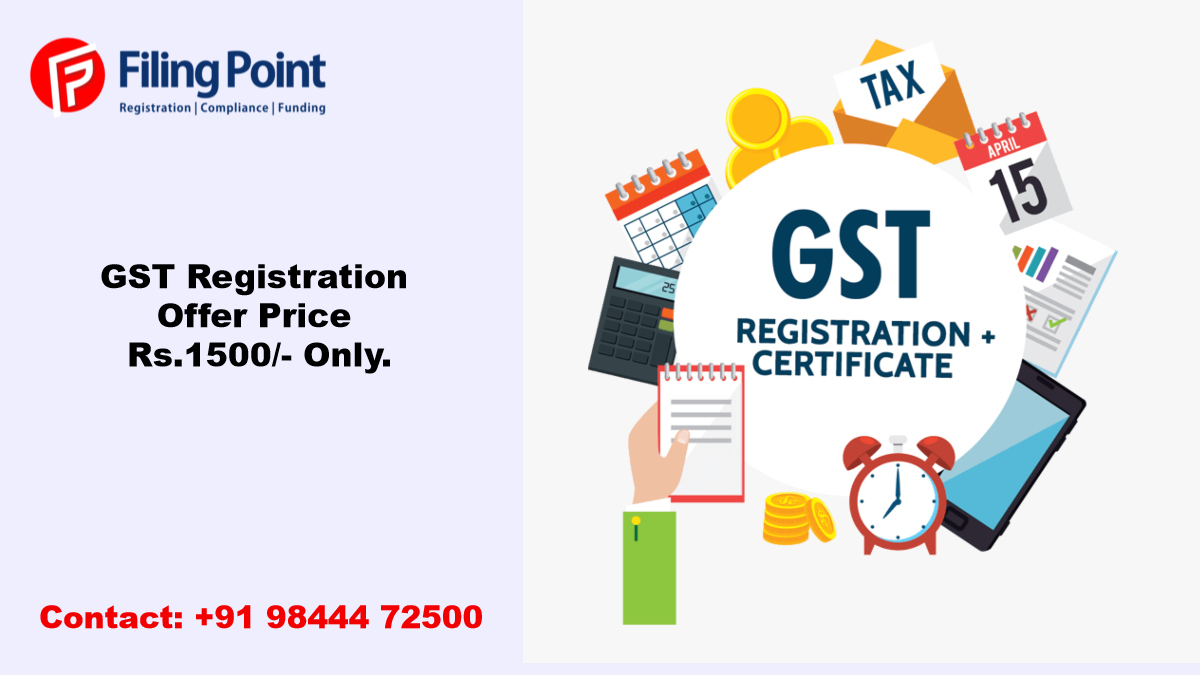How to Browse Singapore GST Registration for Your Firm
How to Browse Singapore GST Registration for Your Firm
Blog Article
The Ultimate Guide to Simplifying the GST Registration Refine and Needs for Small Company Owners

Comprehending GST Fundamentals
To comprehend the basics of the Product and Solutions Tax (GST) system, local business proprietors need to first comprehend its underlying implications and concepts. GST is a value-added tax obligation imposed on a lot of items and services for domestic intake. It intends to enhance the tax process by changing multiple indirect tax obligations enforced by the state and central governments. Under the GST regime, organizations are called for to collect and sign up tax in support of the federal government, making sure transparency and compliance.
One of the vital concepts of GST is input tax obligation credit history, which allows services to claim credit for tax obligations paid on their acquisitions. This system protects against the cascading result of taxes and promotes performance in the tax system. In addition, GST is a destination-based tax, indicating that the tax obligation is levied at the factor of intake instead of the factor of beginning. This guarantees reasonable circulation of tax earnings among states based upon where the items or services are consumed. Comprehending these standard concepts is essential for tiny business owners to navigate the intricacies of the GST system and make certain compliance with the legislation.
Eligibility Criteria for Registration
Having established a fundamental understanding of GST concepts, small company proprietors must now meet particular eligibility requirements to proceed with the registration procedure. In India, entities took part in the supply of products or services with an annual aggregate turnover going beyond Rs. 40 lakhs (Rs. 10 lakhs for unique group states) are called for to sign up for GST. Furthermore, specific services such as those associated with inter-state supply of goods, casual taxed individuals, and those needed to pay tax under the reverse charge mechanism must sign up for GST regardless of their turnover. Additionally, companies that were registered under the previous tax obligation routine (VAT, service tax obligation, etc) are likewise mandated to register under GST. Nonetheless, agricultural services that just supply produce out of main manufacturing are exempt from GST enrollment. It is crucial for entrepreneur to carefully examine their qualification based upon these standards to ensure compliance with the law and avoid any charges for non-compliance.
Records Required for GST Enrollment

Simplified Enrollment Process Steps
Complying with the collection and confirmation of the requisite records, the registration process for GST can be browsed through a collection of streamlined actions developed to promote official statement efficient compliance for tiny company owners. Upon effective confirmation, an Application Reference Number (ARN) is issued, suggesting the conclusion of the GST enrollment procedure. By following these simplified steps, small business owners can properly sign up for GST and make certain conformity with tax laws.
Tips for Ensuring Conformity
To maintain regulative adherence and functional honesty, diligent oversight and proactive steps are essential in making certain conformity with GST needs for small company proprietors. Little service proprietors need to remain upgraded with GST laws, submitting deadlines, and any changes in tax rates to avoid penalties and maintain a good standing with tax authorities. Attending GST awareness workshops or training programs can boost understanding and conformity with GST laws, ultimately profiting the company in the long run.
Final Thought
In conclusion, small service owners must recognize the fundamentals of GST, fulfill the qualification standards, collect required files, and follow the streamlined enrollment process steps to make certain conformity. By simplifying the GST registration procedure and demands, little business proprietors can stay clear of fines and operate their companies efficiently within the lawful framework - Singapore GST Registration. It is essential for tiny service owners to remain certified and educated with GST regulations to keep a successful business procedure
Small organization proprietors seeking GST enrollment must guarantee they gather and send the required documents to finish the registration procedure efficiently. The papers required for GST enrollment normally include evidence of business enrollment or site here incorporation, FRYING PAN you could check here (Permanent Account Number) card of the service identity, entity and address evidence of the promoters/partners/directors, photographs, address proof of the area of company, financial institution account statements or canceled cheques, and consent forms. Participating in GST awareness workshops or training programs can improve understanding and conformity with GST policies, eventually profiting the company in the lengthy run.
By streamlining the GST registration process and needs, small company proprietors can avoid charges and run their businesses efficiently within the lawful framework. It is important for tiny company proprietors to remain informed and compliant with GST laws to maintain a successful company procedure.
Report this page